Blog
Fundraising
Resources related to raising capital from investors for startups and VC firms.
All
Fundraising Metrics and data Product Updates Operations Hiring & Talent Reporting Customer Stories
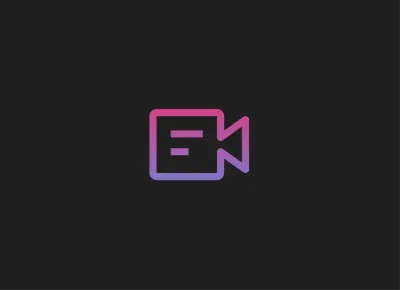
founders
Fundraising
How to Raise Capital Using RUVs ith Jeremy Sonne
As AngelList puts it, “Rollup Vehicles (RUVs) are special purpose vehicles (SPVs) that allow founders to consolidate multiple smaller investors into a single investing entity. It saves founders (and their legal teams) the hassle of collecting funds and signatures from many individuals, both to close the round in question and on future stockholder consents.”
Jeromy Sonne, CEO and Founder of Decibel, recently leveraged RUVs and online communities to help raise a financing round. Jeromy was able to raise ~$150k from 41 different investors. The best part? He didn’t have to do a single investor call.
Jeromy joined us to break down how he raised using an RUV. A few topics we discussed:
What is a roll-up vehicle
How do RUVs compare to SAFEs and other instruments
How they can complement a financing round
What tools and resources exist for raising via RUVs
How Jeromy raised using an RUV

founders
Fundraising
Our 5 Favorite Quotes About Pitch Decks from the Founders Forward
On season 2 of the Founders Forward Podcast, we interviewed 10 different startup investors. We covered everything from storytelling to mental health.
However, fundraising was a constant theme throughout the season. Many of our guests broke down their thought processes and what they like to see from founders. As pitch decks continue to become an integral part of a fundraise, we dug into how different guests view and look for in pitch decks from potential investments.
Check out our 5 favorite takeaways about pitch decks from season 2 below:
Brett Brohl on the 4 Slide Pitch Deck
Brett Brohl of Bread & Butter Ventures shares the idea of using an email intro deck. He suggests a 4 slide deck that your network can use to forward and share with potential investors. The idea is that a 4 slide deck gives a potential investor enough context to be intrigued but not too much information where they will already have a strong opinion on your company before meeting you. Listen to the full episode here.
Elizabeth Yin on Using Pitch Decks for Conversation
Elizabeth Yin of the Hustle Fund makes the case that founders don’t actually need a pitch deck. However, she does recommend that founders have a 5 slide pitch deck to use during the fundraising process. This gives the investor enough information but can lead to a conversation as opposed to a pure pitch. Listen to the full episode here.
Kristian Andersen on Crafting Your Narrative with a Pitch Deck
Kristian Andersen of High Alpha shares why a pitch deck is never a linear template. Kristian suggests that founders think about the story of their company and pitch before building their deck. The story should be applied to your pitch and can help build out the direction of your pitch deck. Listen to the full episode here.
Ezra Galston on What to Share Before a Meeting
Similar to Elizabeth Yin, Ezra Galston of Starting Line does not have a strong opinion on the medium founders use when sharing information with investors. However, he wants to make sure that he has enough context before having a conversation with a potential founder. Listen to the full episode here.
Gale Wilkinson on Must-Haves in a Pitch Deck
Gale Wilkinson of Vitalize recommends that founders have a pitch deck or one-pager that founders can share with potential investors. Gale goes on to break down the slides that she believes founders should always improve in their pitch deck. Listen to the full episode here.
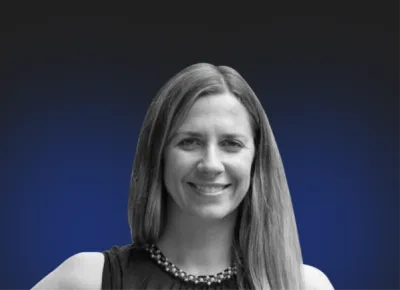
founders
Fundraising
Reporting
How to Build an Investor List with Gale Wilkinson of Vitalize
On episode 10 of the Founders Forward Podcast, we welcome Gale Wilkinson. Gale is the Managing Partner at Vitalize Ventures — “an early-stage fund & angel community investing in software focused on future of work and future of learning.”
About Gale
Before starting Vitalize, Gale started her career in venture capital at Irish Angels. Gale is one of our favorite follows on Twitter where she shares tactical tips for founders on fundraising. She joins us to break down some of her most popular threads on Twitter and offers countless takeaways to help early-stage founders fundraise — covering everything from list building to ownership benchmarks.
Our CEO, Mike Preuss, had the opportunity to sit down and chat with Gale. You can give the full episode a listen below (Or listen on Spotify, Apple Podcasts, or any standard podcast player):
What You Can Expect to Learn from Gale
How VC has changed over the last 10 years
Why Vitalize is launching an angel group
Why list building is vital to a successful fundraise
How many investors a founder should expect to talk to during a raise
What catches her eye in a cold email from a founder
What she looks for in a pitch deck
Why she cares about financial modeling at the early stages
Related Resources
Gale’s Twitter
Gale’s LinkedIn
Vitalize’s Visible Connect Profile
[Thread] Gale on Cold Emails
[Thread] Gale on Data Rooms
[Blog] How Long Does Fundraising Take?
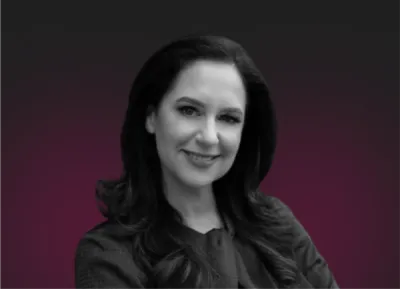
founders
Fundraising
Determining if an Accelerator is Right For You with Lisa Besserman of Expa
On episode 9 of the Founders Forward Podcast, we welcome Lisa Besserman. Lisa Besserman is the Managing Director at Expa — an accelerator based in Austin, TX dedicated to supporting pre-seed companies.
About Lisa
Lisa started her career as an economist but ultimately found her way to founding Startup Buenos Aires — an accelerator located in Buenos Aires to help support startups in Latin America. Since then, Lisa has made the move to Expa where is the managing director of their accelerator. Between her time at Startup Buenos Aires and Expa, Lisa has a wealth of knowledge related to all things company building, fundraising, and leading — especially at the early stages.
Our CEO, Mike Preuss, had the opportunity to sit down and chat with Lisa. You can give the full episode a listen below (Or listen on Spotify, Apple Podcasts, or any standard podcast player):
What You Can Expect to Learn from Lisa
How founders can best connect with investors
How to determine if an accelerator is right for your business
What kind of companies Expa is interested in funding
Why founders should try their best for a warm intro
What she likes to see in a cold email
How to determine how much to raise
What she thinks the future of VC looks like
Related Resources
Lisa’s Twitter
Lisa’s LinkedIn
Application to apply for Expa
Expa’s Visible Connect profile

founders
Fundraising
How to Raise Your Series A With Michael Rangel of Novo
Building a company is difficult. Being a founder can almost feel impossible. There are very few people that have been in the shoes of a founder. As a startup founder, there is no one better to learn from than the person that has been there before.
The team at Novo recently raised a $41M Series A. Novo’s CEO, Micheal Rangel, was generous enough to join us and talk about how they raised it. Micheal breaks down everything from his preparation to pitch to metrics and more.
A few topics we discuss:
Determining if you are ready for your Series A
How to prepare yourself for a raise
How to prepare your company for a raise
How to prepare your pitch and documents for a raise
How to craft your Series A pitch deck and narrative
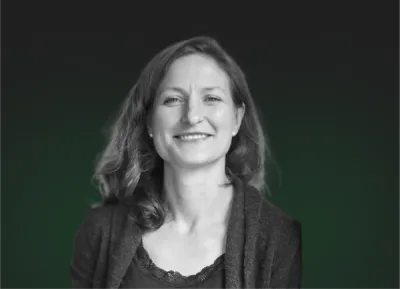
founders
Fundraising
The Past, Present, and Future of VC Funding with Anne Dwane of Village Global
On episode 8 of the Founders Forward Podcast, we welcome Anne Dwane. Anne is the partner and co-founder at Village Global — an early-stage venture capital firm backed by successful entrepreneurs.
About Anne
Anne has a unique perspective on the VC space as she founded her first successful startup, Military.com, in the 1990s. After Military.com, Anne founded a startup later acquired by Chegg where she helped scale as they went public. Anne joins us to share what she has learned from time in the space. We discuss who founders should look to for advice, the thought process behind the roster of Village Global’s LPs, and how founders can build a fundraising process.
Our CEO, Mike Preuss, had the opportunity to sit down and chat with Anne. You can give the full episode a listen below:
What You Can Expect to Learn from Anne
What Anne learned from helping scale Chegg
How the startup world has transformed since her time founding Military.com in the 90s
Why founders should look for a “thought partner”
Why founders funding founders is a good thing
How to build a fundraising process
What she likes to see in a cold email from a founder
Related Resources
Anne’s Twitter
Anne’s LinkedIn
The Village Global application
Village Global’s Visible Connect Profile
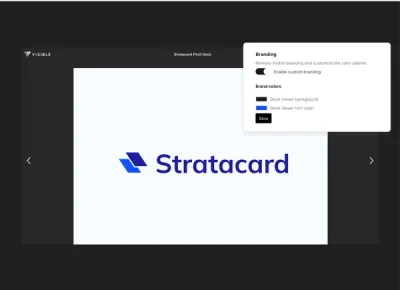
founders
Fundraising
Product Updates
Introducing Decks — Manage Your Raise From Deck to Check
The pitch deck is the core marketing asset that jumpstarts any fundraising effort. It acts as the catalyst for connection, conversation, and relationship building.
How Pitch Deck Sharing Works
We talked to hundreds of founders, and three problems emerged around pitch deck sharing:
I’m not sure how prepared a potential investor is before heading into a meeting.
I’m under-networked. I share my deck to get meetings but want to understand who is engaged.
I iterate on my deck every hour. Sharing the latest version is a pain.
Introducing Visible Pitch Decks
Today, we are launching Decks. A dead-simple way to host and share a pitch deck on Visible. Decks are completely integrated with our fundraising crm and leading investor updates platform. You’ll be able to set customized sharing permissions, notifications when investors view your deck, upload new versions without clicking a button, and understand how potential investors have engaged with your content.
Just as a sales team has dedicated tools for their day-to-day, founders need dedicated tools for managing the most expensive asset they have, equity. Our community can now find investors, track a fundraise, and share a pitch deck directly from Visible and completely integrated.
Want to see a Deck hosted on Visible in action? Take a look here.
Whether we are building fundraising automation with our Zapier Connection or crafting integrations with companies like ProfitWell, we are driven by giving founders a better chance of success. It is going to be a very fun fall 😉
Up & to the right,
Mike & The Visible Team
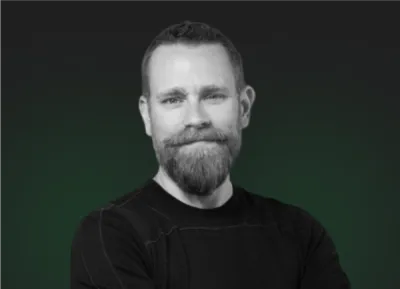
founders
Fundraising
Operations
Customer Stories
How Design Can be a Competitive Advantage with Kristian Andersen of High Alpha
On episode 7 of the Founders Forward Podcast, we welcome Kristian Andersen. Kristian is a founder and partner at High Alpha, a venture studio located in Indianapolis.
About Kristian
Before launching High Alpha, Kristian founded the prolific design agency, Studio Science. During his time at Studio Science, Kristian primarily served software companies which ultimately led to him being a founding partner at High Alpha. Between Kristian’s experience at Studio Science and his time at High Alpha helping launch 30+ companies, it is safe to say he knows a thing or 2 about design and storytelling. Kristian joins us to break down how design can be a competitive advantage, the importance of storytelling in business, the High Alpha Studio model, and much more.
Our CEO, Mike Preuss, had the opportunity to sit down and chat with Kristian. You can give the full episode a listen below:
What You Can Expect to Learn from Kristian:
How the High Alpha Studio models work
What kind of co-founders they look for at High Alpha
How design can be a competitive advantage
Why storytelling is important in business and fundraising
Why Coco Chanel, Teddy Roosevelt, and Ralph Lauren are great storytellers
What he likes to see in a cold email from a founder
Related Resources:
Kristian’s Twitter
Kristian’s website
Apply to become a High Alpha Co-founder
High Alpha’s Visible Connect Profile
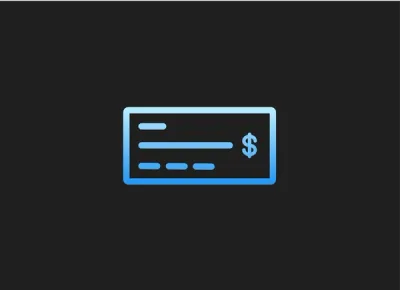
founders
Fundraising
Reporting
10 Fundraising Takeaways from Season 2 of the Founders Forward
We are just over halfway through season 2 of the Founders Forward. We’ve talked to 6 awesome investors and have dug into everything from pitch decks to mental health.
To recap the first half of the season, we’ve shared our favorite quotes and thoughts from the season so far below. If you’d rather skip to a specific episode, you can do so below:
The Supply & Demand of Venture with Kenn Shasta
One of the questions we have asked all guests this year is, “What is one tip to help founders create momentum in their fundraise?” We’ve heard a flurry of great answers but really love the advice from Kenn So of Shasta Ventures.
Kenn recommends founders start to include target investors on their monthly/quarterly Updates. This way investors already know what’s going on and have already build a trend line when it comes to your company. Give the full episode a listen below:
Creating Momentum in Your Fundraise with Brett Brohl
One of the most common mistakes we see founders make is underestimating the amount of time it takes to complete a fundraise. From finding and researching investors to signing a term sheet can take 5+ months. We love how Brett Brohl of Bread & Butter Ventures broke down a fundraise into 5 months, or 1-3-1:
1 month — Researching and finding the right investors
3 months — Actively pitching investors
1 month — Time to close after it is fully committed
To learn more fundraising tips and advice for seed-stage founders, give the full episode with Brett a listen below:
How to Create FOMO During a Fundraise with Elizabeth Yin
When going out to raise a round of capital, most founders assume that you should try to find a few large investors that can fill the round so you can be done. However, Elizabeth Yin of Hustle Fund argues that small checks can be a really powerful tool.
While there are certainly some downsides, smaller checks allow you to create momentum and build your network. Elizabeth shared an example of a portfolio company that landed one small investor who ended up introducing them to the majority of their investors. Give the full episode with Elizabeth a listen below:
Building a Calm Company with Tyler Tringas
One of the questions we have asked all guests is, “What catches your eye in a cold email from a founder?” Tyler Tringas of Calm Company Fund had a great and unique take. Tyler likes to see a quick video of the product actually working. This can help create excitement and give him an idea of the state of the product.
Give our episode with Tyler a full listen below:
How Founders Can Address Their Mental Health with Ezra Galston
Before sitting a meeting with an investor there is an expectation that you will send over some kind of pitch deck or data or synopsis. Some investors will tell you full deck. Others might suggest a mini-deck. Regardless of the medium, Ezra Galston of Starting Line just wants enough context to have a good conversation.
Sending over enough context beforehand enables Ezra to understand some basics and have enough information to dig into questions and have a strong conversation. Give our interview with Ezra a full listen below:
All Things Community-Led Growth with Corinne Riley
A seed-stage and Series A fundraise can feel quite different for a founder. At the seed stage you likely have little to no revenue, few metrics, and a simple product. By the time you get to your Series A, you likely have product-market fit and have a solid revenue base. While the business might look different, some parts of your pitch stay the same.
We love how Corinne Riley of Greylock breaks down constant things she looks for in a pitch, regardless of stage. Give the full episode with Corinne a listen below:
How Design Can be a Competitive Advantage with Kristian Andersen
A successful pitch and story can make or break a fundraise. As the co-founder of the venture studio, High Alpha, Kristian has helped countless early-stage companies craft their narratives and build their pitch deck.
In our interview with Kristian, he points out the importance of starting with your story when crafting your pitch deck.
The Past, Present, and Future of VC Funding with Anne Dwane
As a first-time founder, finding someone you can lean on for advice and experience can be crucial. Anne Dwane of Village Global recommends that founders can find a “thought partner.” This might be a peer that is someone who is at a similar stage or only a step or 2 ahead.
Determining if an Accelerator is Right For You with Lisa Besserman
The importance of being able to send a strong cold email was a consistent topic with all of our guests this season. More than anything else, Lisa Besserman of Expa likes to see a deck from a founder. In our interview with Lisa, she breaks down what specifically she likes to see in a deck as well.
How to Build an Investor List with Gale Wilkinson
Fundraising generally mirrors a traditional B2B sales funnel. Just like a sales funnel, you need leads and a strong customer profile at the top to fuel your process. Gale Wilkinson of Vitalize suggests that founders have a running list of investors that are a fit for your business.

founders
Fundraising
How to Model Your Seed Round With Yin Wu of Pulley
Raising capital in the early days of your business can have major implications later in your company lifecycle. Yin Wu, CEO of Pulley, joined us to walk through what to consider when determining how much to raise, setting valuations, and more.
Yin joins us to talk about all things fundraising, cap tables, valuations, and dilution. You can expect to dig into some of the following topics
Who should raise venture capital
What is impacting recent valuations
Raising using SAFEs
Determining how much to raise
Setting your company valuation
How much dilution a seed company should expect to see
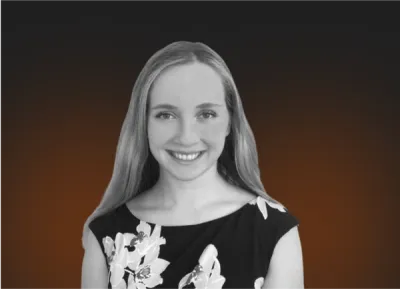
founders
Fundraising
Operations
Metrics and data
All Things Community-Led Growth with Corinne Riley of Greylock
On episode 6, season 2 of the Founders Forward Podcast, we welcome Corinne Riley. Corinne is an investor at the prolific venture capital firm, Greylock, where she primarily invests in B2B companies.
About Corinne
Over the course of her career, Corinne has built a knack for helping companies build and develop a go-to-market motion. Corinne has extensive knowledge of community-led growth and helping companies grow at the earliest stages of their business. Corinne joins the show to break down community-led companies and the thought process behind her investment decision-making.
Our CEO, Mike Preuss, had the opportunity to sit down and chat with Corinne. You can give the full episode a listen below:
What You Can Expect to Learn from Corinne
What a community-led company is
How community-led growth can be a moat
What the community commitment curve is
What changes between a seed and series A pitch
What data she would expect to see in a Series A company
What she likes to see in a cold email from a founder
Related Resources
Corinne’s Twitter
Common Room & Uncommon
Corinne’s post on Community-Led Growth
The Business of Belonging
Greylocks’s Visible Connect Profile
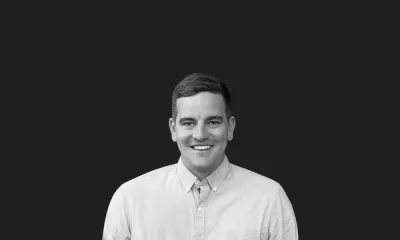
founders
Fundraising
Mike’s Note — Progressive Disclosure
Progressive disclosure is an interaction design principle that sequences screens, so users do not feel overwhelmed and inevitably bounce.
Progressive Disclosure & Fundraising
Founders should take note of this principle when reaching out to potential employees and investors. Your goal is always to get to the next step, not get hitched after 2,000 words. If you are connecting with someone for the first time, your goal should be to receive a response. Keep things between 50 to 250 words (just like this note).
As Kunu says, do less.
Use Visible for Your Next Fundraise
No matter the series, size, or timing of your round, Visible is here to help. With Visible, you can manage every stage of your fundraising pipeline:
Find investors at the top of your funnel with our free investor database, Visible Connect
Track your conversations and move them through your funnel with our Fundraising CRM
Share your pitch deck and monthly updates with potential investors
Organize and share your most vital fundraising documents with data rooms
Manage your fundraise from start to finish with Visible. Give it a free try for 14 days here.
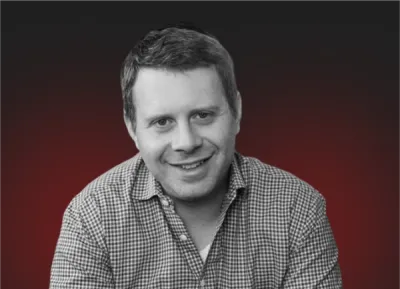
founders
Fundraising
Operations
How Starting Line Helps Founders Address Their Mental Health with Ezra Galston
On episode 5, season 2 of the Founders Forward Podcast, we welcome Ezra Galston. Ezra is the founder and partner at Starting Line, a consumer-focused VC fund located in Chicago.
About Ezra
As someone who has faced the ups and downs of being a founder (plus the stresses of fundraising), Ezra and the team at Starting Line has made mental health a focus. Every founder in the Starting Line portfolio receives a subsidy for “their first three sessions of therapy, executive coaching, or co-founder counseling (up to $200 each).” Ezra joins the Founders Forward to break down fundraising, founder health, and the consumer market/what excites the team at Starting Line.
Our CEO, Mike Preuss, had the opportunity to sit down and chat with Ezra. You can give the full episode a listen below:
What You Can Expect to Learn from Ezra
How a founder and board’s focus changes from early stages to later stage
How venture fundraising differs for the “haves” and “have nots”
How Ezra’s experiencing raising capital has impacted how he views fundraising
Why Starting Line has a focus on their portfolio founder’s mental health
How Starting Line subsidizes mental health sessions
Why fundraising is a relationship-based activity
Why he likes plenty of context before a meeting with a founder
Related Resources
Ezra’s Twitter
The Starting Line Operating Manual
Starting Line’s Visible Connect Profile
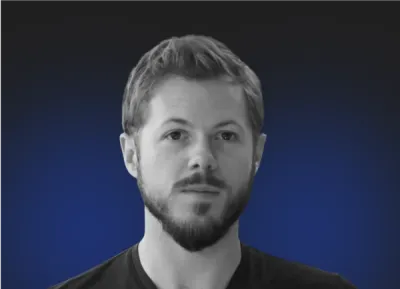
founders
Fundraising
Operations
Customer Stories
Building a Calm Company with Tyler Tringas
On episode 4, season 2 of the Founders Forward Podcast, we welcome Tyler Tringas. Tyler is the founder and General Partner at Calm Company Fund (formerly Earnest Capital). The Calm Company Fund invests in exactly what it sounds like — “profitable, sustainable, calm businesses.”
About Tyler and Calm Company Fund
Tyler offers a unique perspective as someone who invests in companies that may not be the huge companies that a traditional venture capitalist eyes. He joins us to break down what exactly a “calm” business is, the current market dynamics that are creating more need for funders like Calm Company Fund, and much more.
Our CEO, Mike Preuss, had the opportunity to sit down and chat with Tyler. You can give the full episode a listen below:
What You Can Expect to Learn from Tyler
How companies in smaller markets can still be winners
What a SEAL is and how Calm Fund uses them
The market dynamics creating a need for more funding options like Calm Fund
Why and how they raised crowdfunding
How Calm Fund and Venture Capital can co-exist for startups
How to best cold email investors
Related Resources
Tyler’s Twitter
Calm Capital — What We Invest In
Shared Earnings Agreement
Our Original Sit Down with Tyler
The Calm Fund Visible Connect Profile
Bootstrapping 101: Pros & Cons of Bootstrapping Your Startup
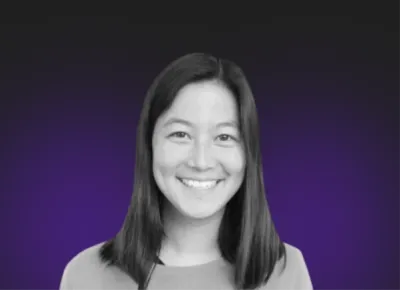
founders
Fundraising
Reporting
How to Create FOMO During a Fundraise with Elizabeth Yin of Hustle Fund
On episode 3, season 2 of the Founders Forward Podcast, we welcome Elizabeth Yin. Elizabeth is the founder of Hustle Fund, a venture fund for “hilariously-early founders.”
About Elizabeth
As a past founder and current investor (and a founder favorite Twitter follow), Elizabeth knows what it takes to successfully raise a round of venture capital. Elizabeth breaks down how founders can leverage tranches, raising from small funds and angels, and shares other tactical tips to knock out your seed round.
Our CEO, Mike Preuss, had the opportunity to sit down and chat with Elizabeth. You can give the full episode a listen below:
What You Can Expect to Learn from Elizabeth
How to raise capital from angels
How small checks can lead to big checks
How tranches can be an effective way to raise capital
How tranches and meeting cadence can create FOMO
Why you should have a 5 slide deck
What changes between a Seed and Series A round
How to get the attention of an investor via cold email
Related Resources
Elizabeth’s Twitter
Hustle Fund’s Connect Profile
AngelSquad by Hustle Fund
Unlock Your Investor Relationships. Try Visible for Free for 14 Days.
Start Your Free Trial